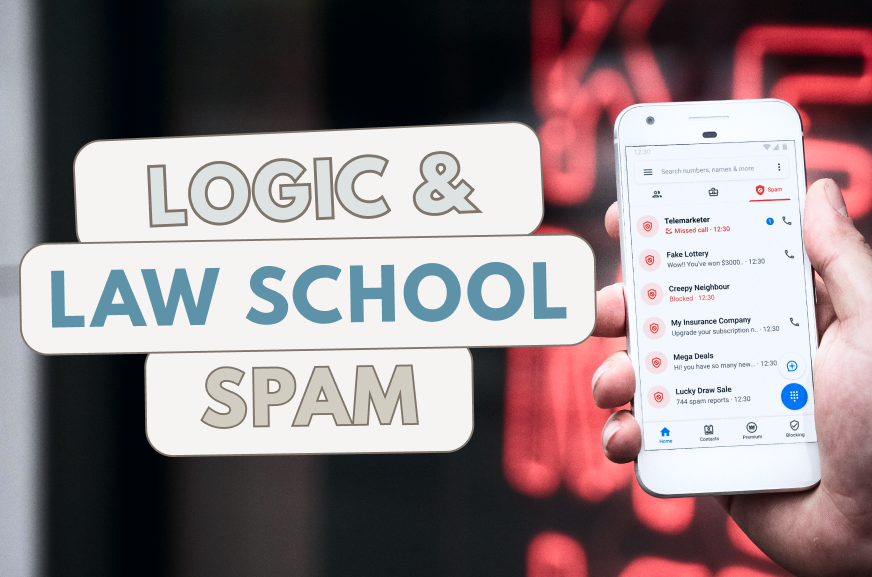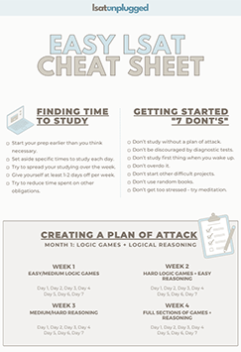I hate spam. I even wrote an article making fun of spammers.
I send emails on a schedule and sent out automatically- and that’s only if you’ve chosen to subscribe via email. I don’t do anything at all with them, and I have trouble just reading all the emails I receive, let alone responding to as many of them as I can.
I really don’t have the time or interest to send extra emails or to create a master email list to cackle over in my free time.
So, I was pretty surprised to receive the following email from a website visitor whom I’ll call “Jim.”

Here’s the text in case you can’t see the image:
You clearly sold (or gave) my email address to a law school — John Marshall. I am extremely careful with this email address and don’t get spam on it. I have never received an email from a law school institution and received one from John Marshall within two hours of making a purchase [on your website]. I trusted your service to keep my email address confidential.
Sincerely,
“Jim”
In all seriousness, I love receiving accusatory emails from website visitors – it really makes my day.
I generally find that the more accusatory the tone is, the more likely the reader is to be incorrect. In the past, these emails have typically been related to one of my original Logic Games. In these emails, the reader assumes there’s a flaw in the game itself, when the flaw is in the reader’s own understanding.
However, “Jim’s” email is related to an action I had supposedly performed. He accuses me not of incorrect logic, but of purposely doing something super-sketchy.
Since I see much of what goes on in the real world as instructional opportunities, I decided to point out the flawed assumptions in “Jim’s” reasoning – for “Jim” himself and for all LSAT Unplugged subscribers.
I responded with the following:
Hi “Jim,”
Please do not assume that I gave or sold your email address to anyone. I would never do any such thing.
It would be a remarkable turnaround time for me to take your email address, forward it to John Marshall, then have them send you an email, all within 2 hours of your purchase.
It is common practice for LSAC (to which you have presumably given your email address at some point) to provide certain law schools with applicants’ email addresses. This is almost certainly what happened.
A better approach to determine what happened might have been to ask John Marshall how they received your email address before accusing me of having shared it. Had you done so, you might have received something like the following:
We obtained your name and contact information lawfully from the Law School Admission Council, and we have used it in accordance with their Candidate Referral Service (CRS) policies. My suggestion to you is to update your LSAC profile to indicate that you no longer wish to be listed on the CRS – this will save you from receiving messages like this one.
If you don’t believe me, why not reply to the email from John Marshall and ask?
I wish you all the best with your LSAT prep. Please see the following link: http://en.wikipedia.org/wiki/Post_hoc_ergo_propter_hoc
Best regards,
Steve
I could’ve gone on and on in my response about post hoc fallacies with examples from specific PrepTests, but I’d rather let all of you weigh and measure the evidence and various considerations in the comments section of this blog post.
Since “Jim” was kind enough to send me an email acknowledging his mistake, I’ll let him have the final words on this post:
Hi Steve,
If I mistakenly accused you sharing my email address, I apologize. As soon as I sent the email, I began to picture your Finding the Flaw in My Reasoning. I don’t think it’s a pure post hoc fallacy case, however, as there were several conditions increasing the likelihood that I received the John Marshall email as a result of sharing my email address with you. That said, I’ll be the first (or second, in this case) to acknowledge that your sharing my email address with John Marshall was not the only possible explanation for my receiving a email from them, and so those conditions were not sufficient to accuse you.
In fact, I checked my LSAC profile and did in fact authorize them to release my information with member schools, but not non-member schools. This action was an out-of-character oversight; I must have filled out the form hurriedly. Given that circumstance, my accusation was likely unjust and I apologize for jumping to conclusions.
I will adjust my LSAC profile and be more careful in the future before making accusations. Thank you for addressing my concerns so quickly, and, more importantly, for sending the two PrepTests I ordered.
Again, my apologies,
“Jim”

